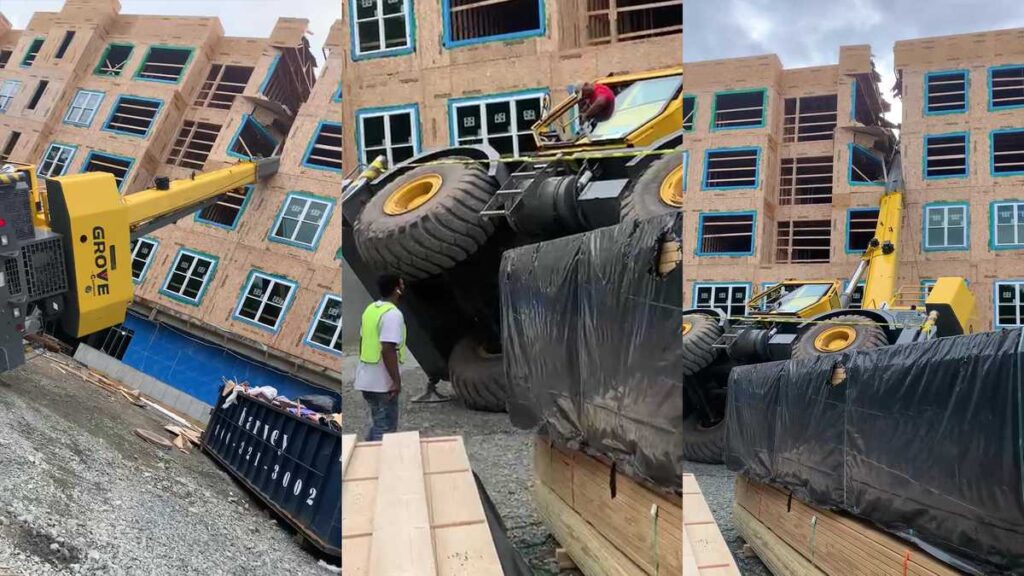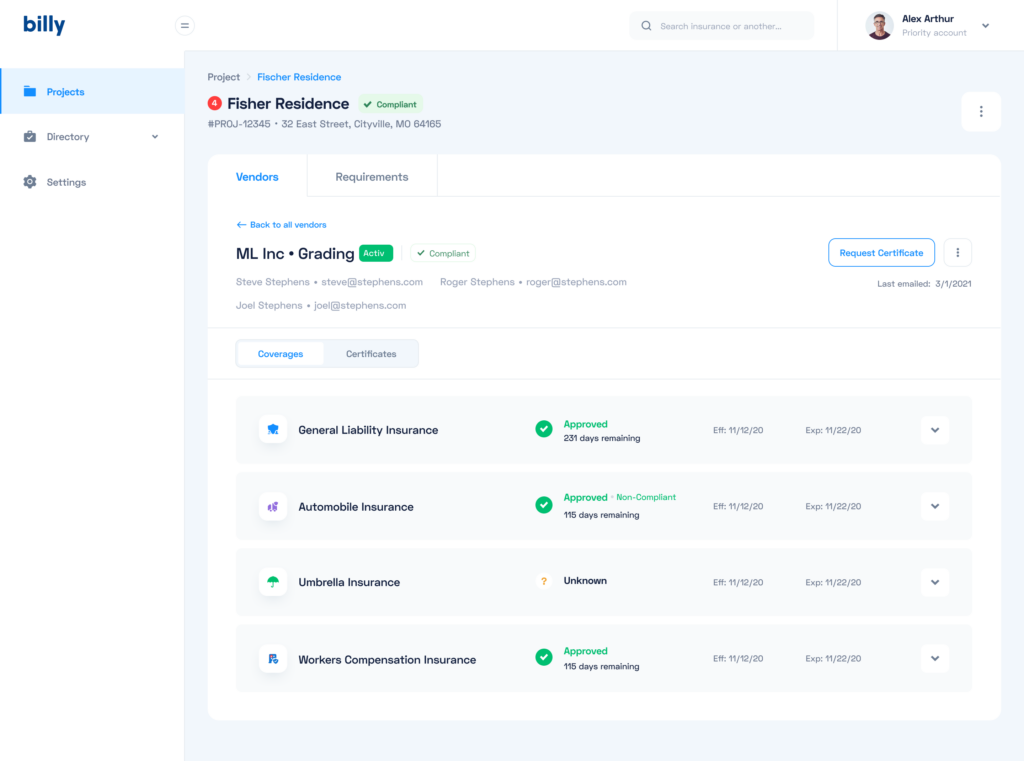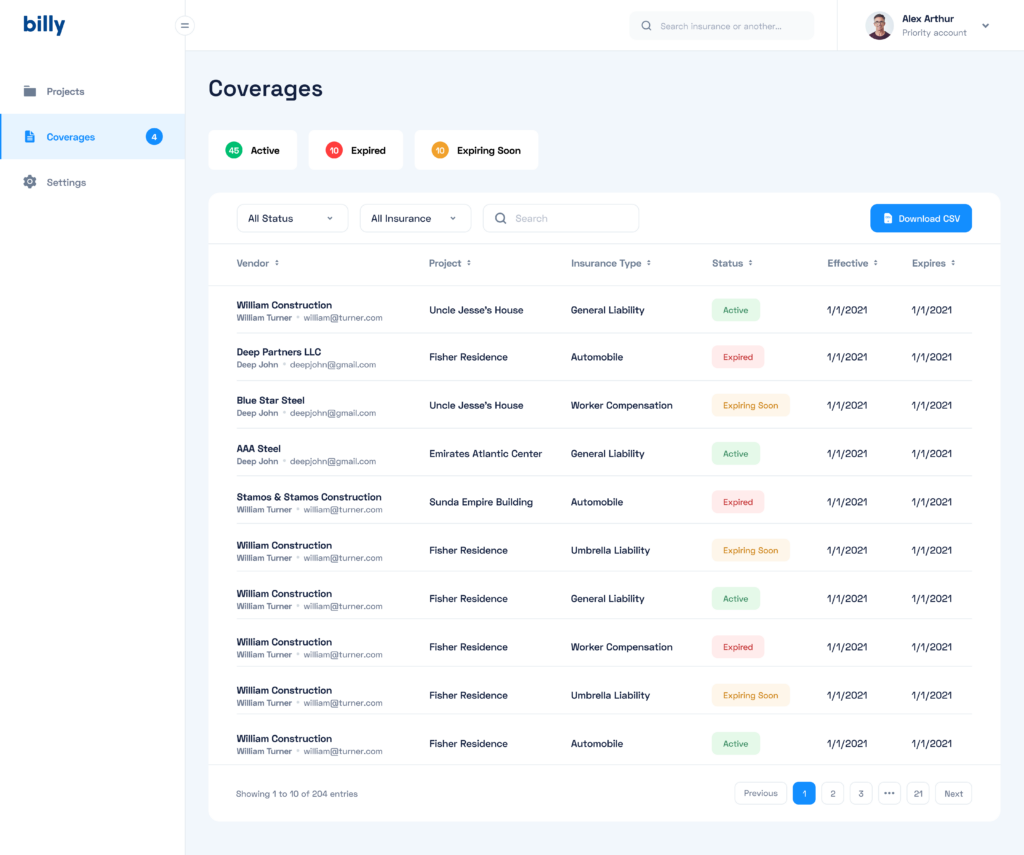Introduction
General Contractors (GCs) play a pivotal role in construction projects, overseeing everything from planning and execution to ensuring compliance with legal and safety requirements. One crucial aspect of their responsibilities is risk management, particularly the risk transfer to subcontractors.
In this blog post, we’ll delve into the “Risk Transfer” concept and why GCs must manage contracts and compliance meticulously. We’ll also explore how Billy, a cutting-edge software solution, can streamline this process and seamlessly integrate with Procore and Autodesk platforms.
Understanding Risk Transfer
Risk transfer in construction refers to subcontracting various tasks associated with a project to the appropriate party (subcontractor/supplier). This is typically done through contracts that clearly define the responsibilities and obligations of each party involved in the event of a loss on a construction project.
Why is Risk Transfer Important?
1. Legal Protection: Properly transferring risks through contracts provides legal protection to GCs. Having well-drafted contracts can shield them from potential liabilities in case of accidents, defects, or other issues.
2. Financial Stability: Effective risk transfer ensures that the financial burden of unforeseen events or project delays falls on the responsible party. This can help GCs maintain financial stability throughout a project.
3. Smooth Project Flow Well-defined contracts and risk transfer mechanisms contribute to smoother project execution by minimizing stakeholder disputes and misunderstandings.

Managing Contracts and Compliance
Managing contracts and ensuring compliance with various legal and safety requirements is a complex task for General Contractors. Here are some critical components that need attention:
1. Signed Contracts: Ensuring that the relevant parties sign all contracts is the first step in solidifying the terms and conditions of a project.
2. Certificates of Insurance: Collecting certificates of insurance from subcontractors that match the contract requirements is crucial. This helps protect against financial losses in case of accidents or property damage.
3. W9s: Obtaining W9 forms from subcontractors is essential for proper tax reporting and ensuring they can be paid without issues.
4. Lien Waivers: Requiring lien waivers for every invoice submitted and paid out helps prevent potential legal disputes and ensures that subcontractors are paid appropriately.
5. Certified Payroll: For government projects to comply with prevailing wage laws and regulations, certified payroll documents are necessary.
6. Safety Agreements and Certifications: Ensuring that subcontractor employees have the necessary safety training and certifications is vital to maintaining a safe working environment.
7. Warranty Forms: Collecting warranty forms at the end of the project ensures that any defects or issues can be addressed promptly.
How Billy Can Help:
Billy is a state-of-the-art software solution that simplifies contract management and compliance for General Contractors. Here’s how it can assist:
1. Centralized Platform: Billy provides a centralized platform for managing contracts and compliance documents, making it easy to access and update information.

2. Automated Document Collection: Billy automates the collection of certificates of insurance, W9s, lien waivers, and other critical documents from subcontractors, reducing manual data entry and administrative burdens.
3. Integration with Procore and Autodesk: Billy seamlessly integrates with Procore and Autodesk platforms, ensuring that compliance documents are synchronized across systems for easy access and reference.

4. Alerts and Reminders: The software sends alerts and reminders for document expiration dates and compliance deadlines, helping GCs manage risk proactively.
5. Efficient Reporting: Billy generates comprehensive reports, making tracking compliance status and identifying potential issues easier.

Conclusion:
Effective risk transfer and contract compliance management are essential to a General Contractor’s responsibilities. With the help of advanced software like Billy, GCs can streamline these processes, reduce administrative burdens, and mitigate potential risks. By integrating Billy with Procore and Autodesk platforms, General Contractors can ensure that their projects run smoothly and comply with all legal and safety requirements, ultimately contributing to successful project outcomes.






